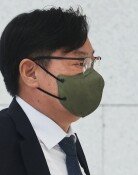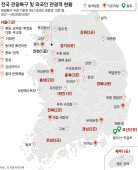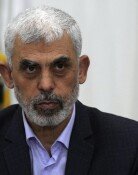Ijo Jeonrang
In the KBS drama Jeon Woo-chi, the main character Jeon punishes corrupt government officials with amazing magic, which gives viewers catharsis. In a recent episode, Ijo Jeonrang, the interior ministrys official in charge of personnel affairs, appears. After the deputy prime minister, who disagrees with a personnel reshuffle plan proposed by Ijo Jeonrang, hires a killer to assassinate the latter, Jeon seeks revenge. Ijo Jeonrang collectively refers to three jeonrang (Grade 5)" and three "jwarang (Grade 6)" officials. If compared with the posts of the incumbent government, Grade 5 (out of nine grades) or Grade 6 officials were considered special. This is because in the Joseon Dynasty, they had the authority to recommend officials for the three offices "Sagangwon," "Saheonbu" and "Hongmungwan," who could directly make suggestions to the king and their own successors.
"Bungdang (factional) politics" in the Joseon Dynasty was triggered by the posts of Ijo Jeonrang. In 1574, when Ijo Jeonrang Oh-geon transferred to another post, he recommended Kim Hyo-won as his successor. Shim Ui-gyeom, the younger brother of Queen Insoon, the wife of King Myeongjong, and Ijo Chamui, a Grade 3 official, opposed the recommendation. Yet Kim became a jeonrang according to past practice. When Kim Hyo-won was to transfer to another post, Shim asked him to recommend his younger brother Chung-gyeom for the Ijo Jeonrang post. But Kim rejected the request, saying, Is Ijo Jeonrang a privilege for a relative? thus causing conflict between both sides. Kim Hyo-won lived in eastern Seoul near the present-day district Chungmuro, and Shim Ui-gyeom lived in Jeongreungbang in the city`s west side near the site of the Seoul City Council. Those who supported Kim were called "dongin (eastern people)," and those who sided with Shim were called seoin (western people)." This was the start of bungdang politics, in which politicians were divided and confronted each other. Later, dongin were further divided into "namin (southern people)" and "bukin (northern people)," and seoin into "noron" and "soron."
The "tangpyeong (fair personnel)" policy implemented by King Jeongjo called for the revocation of Ijo Jeonrangs right to recommend officials for the three offices. The king, who was crowned due to support from noron, widely appointed people from noron initially, but started reforms after learning of the side effects of bungdang politics. The king called in the heads of noron and soron and urged them to reconcile, and revoked Ijo Jeonrangs right to appoint government posts. The king instead exercised the appointment right himself. The measure that gave mid-level officials of Ijo Jeonrang the right to appoint personnel was designed to keep in check ranking officials and relatives of royal families, and ensure autonomy in personnel management. But a system generally cannot overcome people. As people sought to build up connections with Ijo Jeonrang through corrupt means, the practice was one of the causes of the Joseon Dynasty`s eventual demise.
The position equivalent to Ijo Jeonrang in today`s Korea today is the presidential secretary for personnel affairs. The Roh Moo-hyun administration introduced a senor presidential secretary for personnel affairs to find diamonds in the rough, but merely earned criticism for personnel reshuffle through favoritism based on ideology. The succeeding Lee Myung-bak administration came under fire for Ko-So-Yeong," which is outwardly the name of a famous Korean actress, but instead refers to the president`s tendency to appoint to key posts fellow alumni from his alma mater Korea University, members of Somang Presbyterian Church, where he is an alderman, and his home region of Yeongnam, or the two Gyeongsang provinces. Seoul is seeing a large personnel reshuffle for the first time in five years, starting with the announcement of subcommittee secretaries under the presidential transition committee of President-elect Park Geun-hye. Considering the appointments of the committees posts as announced Friday, the president-elect seems closer in practice to King Yeongjo, who abolished the rights of Ijo Jeonrang. What is important is the type of people will appoint, however. If human resource affairs are improperly handled, her administration will ultimately never succeed.
Editorial Writer Chung Sung-hee (shchung@donga.com)
Headline News
- N. Korea redefines S. Korea as ‘hostile state’ in revised constitution
- Samsung develops graphic DRAM with industry-leading capacity and speed
- Three questions allegedly leaked via text message during Yonsei Univ. essay test
- China to inject 340 trillion won in loans to support real estate sector
- Dodgers beat Mets to take 2-1 lead in NLCS







